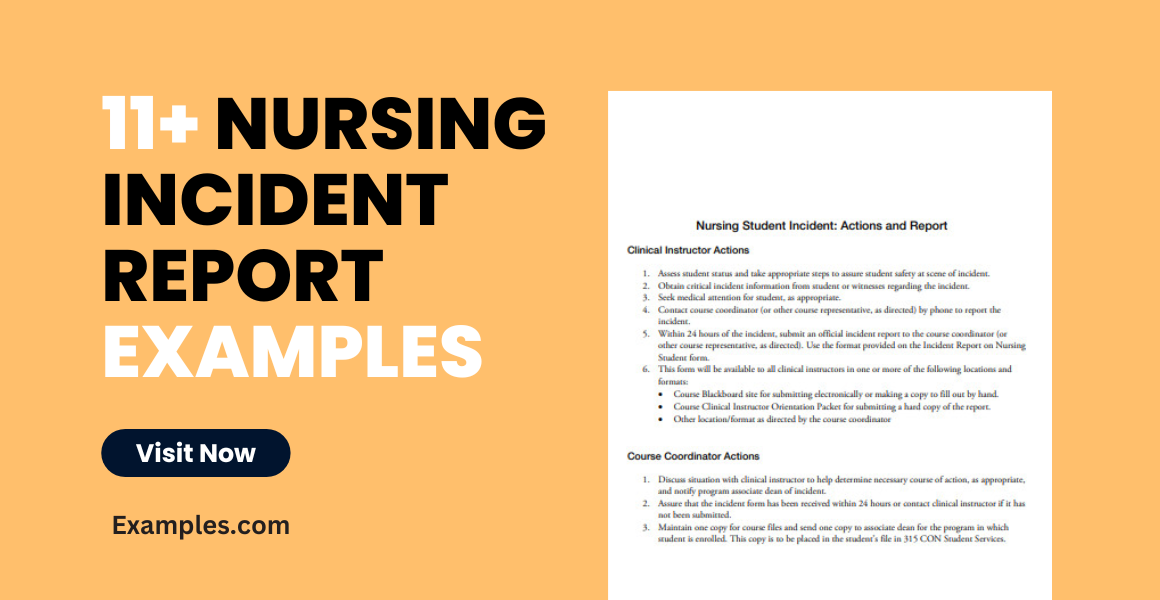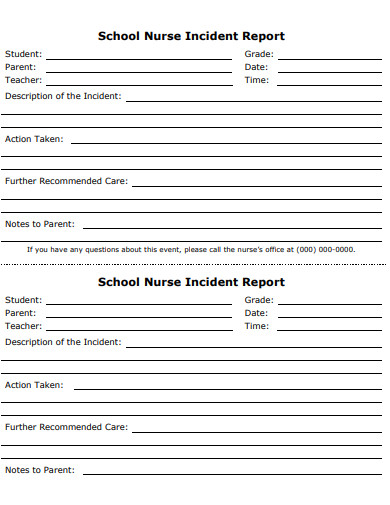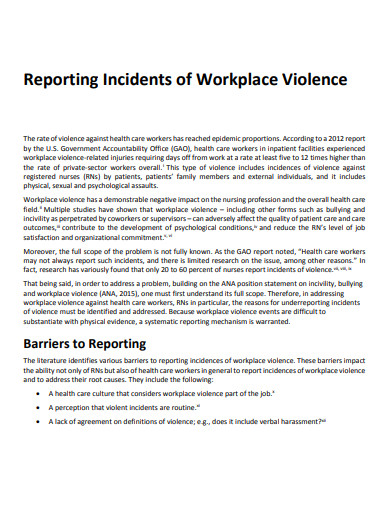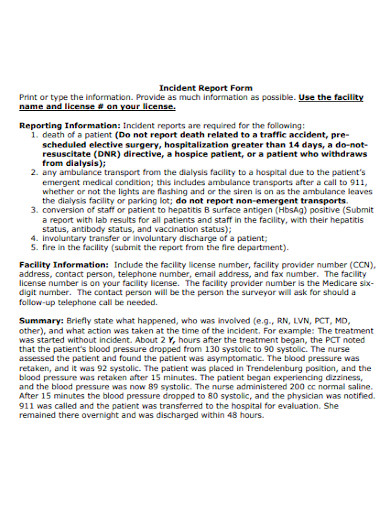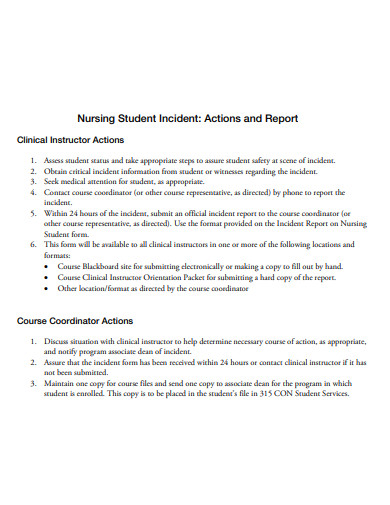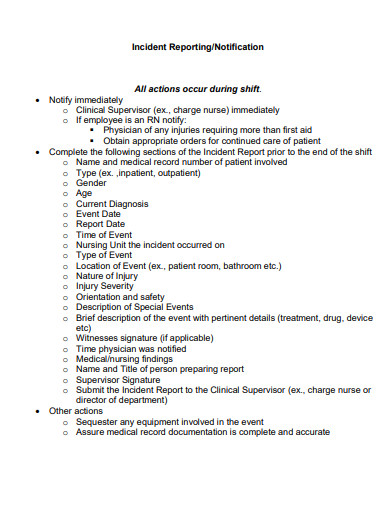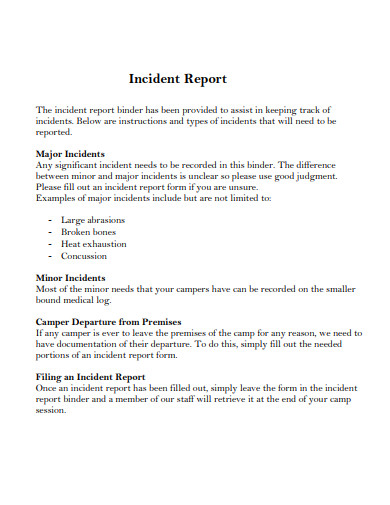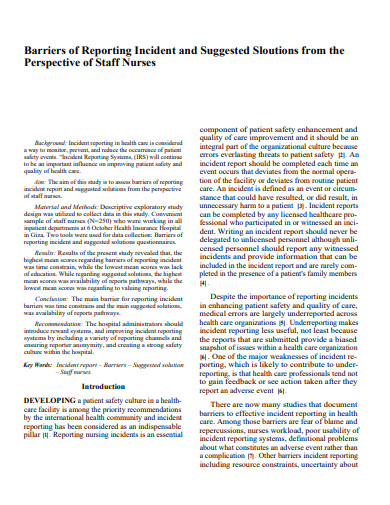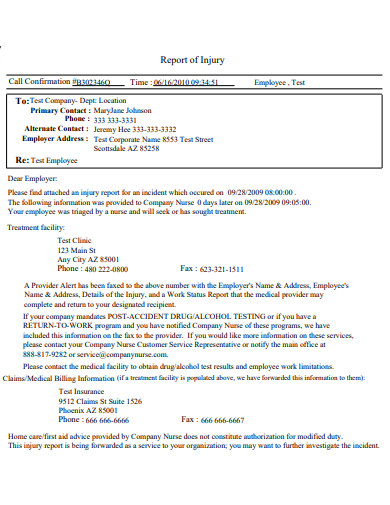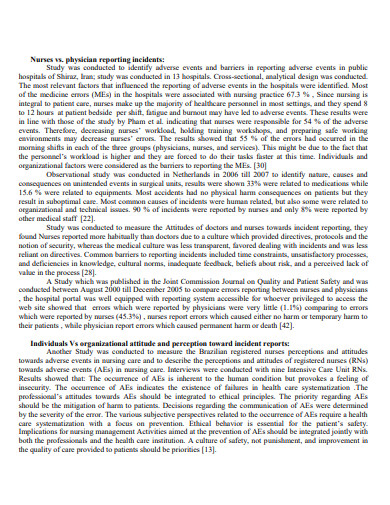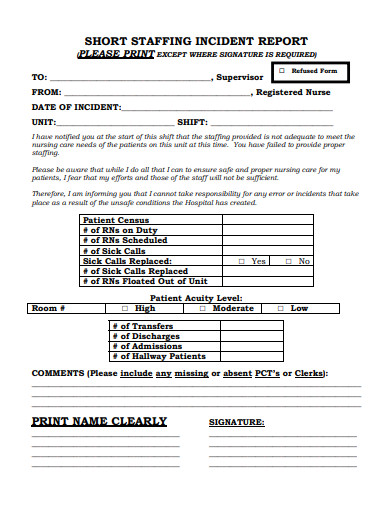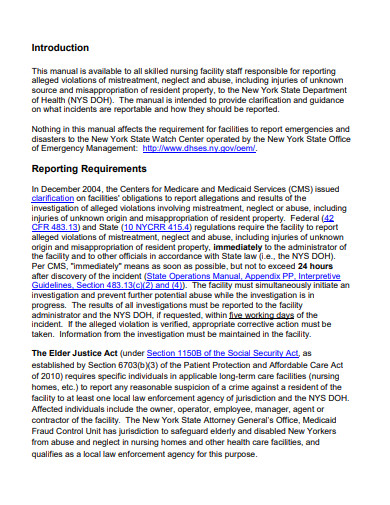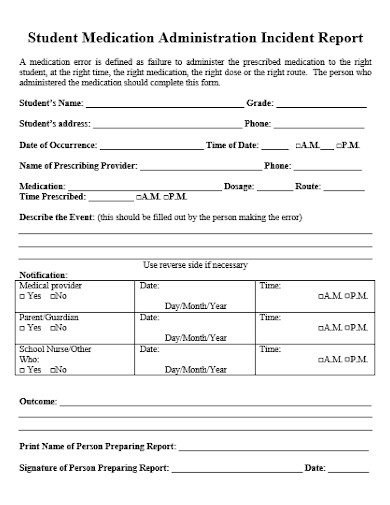11+ Nursing Incident Report Examples to Download
Nurses are no strangers when it comes to incidents that happen in and out of the hospital. Whether they go to work, coming from work or in the middle of work, it would seem incidents follow them. Whoever and wherever it may be, places like hospitals can be considered hotspots for incidents to happen. It goes without saying, anything and anywhere incidents or accidents can come and can happen to just about anyone. Whether these incidents are mild or severe, there is no guarantee it could get worse or it could stop altogether on its own. But rather than turning a blind eye on these kinds of problems, it is always important to file for an incident report.
Especially if you or your patients are going to be victims of the incident. To keep everyone safe from any issues or risks that go with it, incident reports should be a priority especially for those who are working in health care or medical fields. You may wonder what to expect in an incident report, and what can be filled out in it. As well as who can you give the incident report to when it is time to pass it. For answers, you should go and scroll what an incident report is and how to write them.
11+ Nursing Incident Report Examples
1. School Nurse Incident Report
2. Nursing Incidents of Violence Report
3. Printable Nursing Incident Report
4. Nursing Student Incident Action Report
5. Nursing Officer Incident Report
6. Nursing Station Incident Report
7. Staff Nurse Incident Reporting
8. Nurse Injury Incident Report
9. Nurses and Physicians Incident Report
10. Nurses Short Staffing Incident Report
11. Nursing Home Incident Report
12. Nursing Student Medication Incident Report
What Is a Nursing Incident Report?
We know what an incident report is and what it looks like. But do we have any idea as to what a nursing incident report is and what it looks like? Is there even any difference between these two kinds of reports? A nursing incident report is a kind of report that is filled out by nurses or anyone in the health care or medical field. This kind of report is made solely to fill out what they believe may have caused the incident, what happened during the incident and if there are any people involved in it. Since a lot of incidents do happen with patients under health care, an incident report is then used to help figure out the problem, find a solution and be able to find a way to deal with it permanently. Reports like these are very important, apart from it being used by nurses, it is also in a way used as a document or a history report for anyone who may have encountered the same issue and to find a solution or a better solution by comparing it to previous notes.
How to Write a Nursing Incident Report?
Being able to know what can and cannot be written in a nursing incident report is important. Take note that this document is a formal written report, and must be treated as such all the time. So to not make any mistakes when writing your incident report, here are five simple tips to guide you when you are writing your nursing incident report.
1. Remembering the Details as Much as Possible
Just like any other kind of report, a nursing incident report would have the same format as that of a normal report. Remember your details as much as possible. Make sure that what happened during the incident was exactly how it happened. If you are not able to remember the exact things, make sure to give at least clues.
2. Watch Your Tone, Spelling and Grammar
It goes without saying, when you write your incident report, your tone should also be watched carefully. Make sure that when you write, you do not sound as if you are blaming the patient or the nurse, or just about anyone there. Also watch your spelling and grammar. A lot of people would be reading your report and may find it unprofessional to see a lot of spelling and grammar errors.
3. Stick To How and What Happened
Avoid fabricating your report. If it so happens that they find out you fabricated the report, chances are you will face some consequences. A report is not a story filled with nice things, it’s facts. Stick to how and what happened. All the while keeping a professional matter when writing.
4. Provide Facts on What Happened
A good way to prove that this really happened is to provide as much evidence as possible. If you are not able to get a photo to prove it, you can write what happened in chronological order. Make sure that you include the time, the person or people involved and the date. Be more specific as you can.
5. Finalize Your Report and Send It
Last but not the least, check before you finalize and send the report. Make sure when you are reading your report, it sounds professional and not accusing someone of something that happened. In addition to that, make sure that all the facts and evidence are provided in your report.
FAQs
What is a nursing incident report?
A nursing incident report is a kind of report that a nurse or any health care worker writes to report an incident. This report gives a good bird’s eye view of how the incident happened and what can be done to resolve it.
Why is it so important to write about the incident in detail?
The reason it is necessary to write the incident in detail is to make sure that you have written out what really happened. Not fabricating anything in the report and to make sure that anyone who was there is also aware of what happened. That they can assure the one reading your report that it really happened.
What is something that should be avoided when writing a nursing incident report?
Forgetting to place the evidence or the proof of what happened. As well as not rearranging in chronological order as to how it happened. Details are an important part of the incident report.
The next time someone tells you to write a report, always make sure to have the necessary things for it. The evidence or the facts, the information, and most importantly the report itself. Make sure to have every single detail in check. Make sure that your story or your report does not sound like it was fragmented and of course, the tone of your writing should not make it sound like you are not taking this seriously. It is a professional report.


